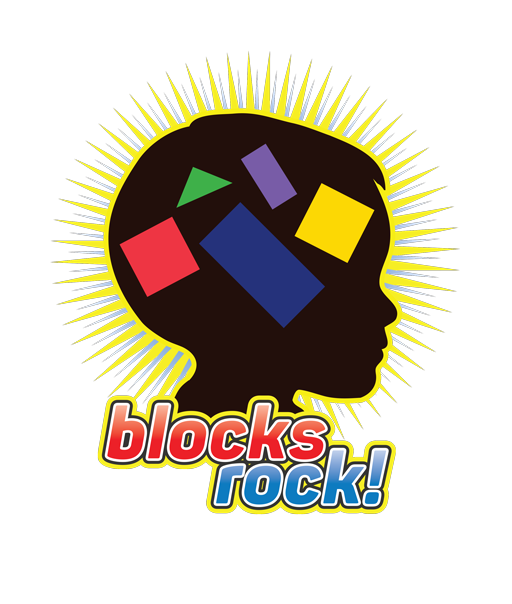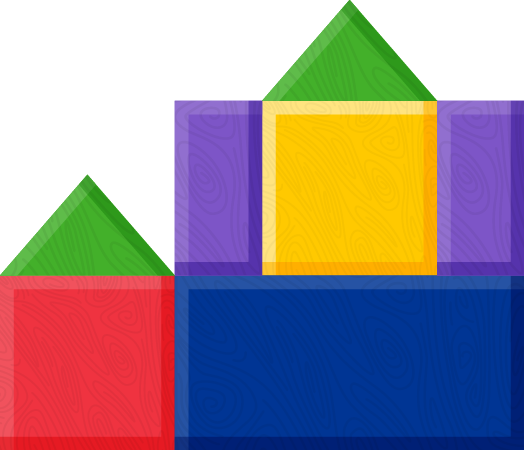STEM Career Spotlight
STEM Career Inspiration for Kids: Meteorologists
We're highlighting awesome STEM careers that inspire kids! Learn more about what meteorologists do, how to become an meteorologist, and more!
At Blocks Rock!, we’re continuing our series highlighting awesome STEM careers that inspire kids! For our third spotlight, we’re choosing an electrifying career...meteorology!
Read this article to learn more about what a meteorologist is and what they do, the steps to become a meteorologist, and fun meteorology-related activities for kids! Read to the end to find our third printable poster, perfect for a child’s bedroom wall or a classroom.

Understanding Meteorology
Your first thought about a meteorologist is probably - they try to predict the weather! While that is part of the job of some meteorologists, there’s actually more to meteorology than you’d expect.
As defined by the American Meteorological Society, “A meteorologist is an individual with specialized education who uses scientific principles to explain, observe...or forecast the earth's atmospheric phenomena and/or how the atmosphere affects the earth and life on the planet.”
The atmosphere is the layer of gas that surround the earth, and it’s around 65-75 miles thick! Phenomena is another word for events or happenings. So altogether, the meteorologists study the layer of gas that surround the earth, what happens in that layer of gas, and how this interesting part of earth affects the life on our planet.
Different types of atmospheric happenings include clouds, changes in the air, weather, storms, and much more.
Some meteorologists go on to forecast, or predict, what type of weather might happen in the atmosphere. Turn on your local news, and you’ll probably see one!
Meteorologist Job Duties
Depending on what you choose to study as a meteorologist, your day could look pretty different.
Some meteorologists are weather forecasters. As EnvironmentalScience.org says, these type of meteorologists use computers and information collected from around the world to help predict weather in their local areas! Many weather forecasters work behind the scenes for the government or for businesses that need help knowing what to expect from the weather, like airlines. If the weather is bad, these meteorologists work to let people know what to expect and how to stay safe.
Other meteorologists are researchers. They can study many different parts of the atmosphere and look at long weather patterns, including global warming. Many of these types of meteorologists work at universities. They could spend their days going out and collecting different air samples to study, chasing and studying storms, looking at information gathered from other researchers to try, and more!
How to Become a Meteorologist
According to the World Meteorological Association, there are a few ways you can get involved with meteorology. Generally, you’ll need a Bachelor of Science in Meteorology or Atmospheric Sciences, or a Master of Science in Meteorology.
Here are some of the steps you can take to make that happen:
Work hard in classes in school that focus on math, chemistry, physics
Make sure you’re good at using computers - since you’ll be using them a lot as a meteorologist!
Choose and attend a college that offers great science education. If you know you want to be a meteorologist, you can get a degree in meteorology or atmospheric sciences. If you want more options, you could study mathematics, physical sciences, or engineering.
Search for experiences that get you into the field and help you try the different areas of meteorology. See if there’s a private weather consulting firm nearby that you can intern at, or a news station, or a laboratory at your school that studies the weather.
If you want, you can decide to earn an advanced degree – a master’s or even a doctorate, which is the highest degree in meteorology.
If you want to be a weather broadcaster on the TV, you should also take communication classes and practice your public speaking.
While becoming a meteorologist can be a lot of work, if you’re passionate about it, you’ll be excited and interested at every step of the way. And by the time you’re done, you could be helping to predict the weather too!
For more information on this, click here to visit the World Meteorological Organization.

Fun Activities for Interested Meteorologists
So what can a parent do for a little weather forecaster? We’ve put together a list of fun activities that encourage a love of science, math, and atmospheric exploration and also helps build skills that are critical for a future in STEM learning!
Track the Weather - As the seasons change, you can learn and observe how the weather changes with it! Little Pinch of Perfect offers a free printable weather chart that’s great for using at home or at school.
Make Your Own Rain or Snow Gauge - Your kids can learn more about the “unpredictable world of meteorology” with this easy home activity from News24.
Use Fun Weather Flashcards to Teach Terms - Easy Peasy Learners has a set of free downloadable flashcards that you can use to teach weather terms. If you print out two sets, you can use it as a memory card game! Download and learn more about the flashcards here!
Make Your Own Windsock- The Chaos and the Clutter shares a way to make a home windsock that shows the direction that the wind is blowing. Click here to learn how!
Read a Book About Weather - There are some fun reading options for your young meteorologist. Try “The Kids Book of Weather Forecasting”, “National Geographic Kids Everything Weather”, and more! Check out a list of book options here.
Explore the National Weather Service’s Online Content for Kids - The National Weather Services has an area of its website that links to activities for kids, including Web Weather for Kids and more. Click here to explore it!
Get inspired with our Meteorologist Printable!
This one-page printable is a fun summary of this blog post and has a checklist of the activities for young meteorologists. Download it here.
As always, if you’re looking to build skills critical for STEM careers, remember to play Blocks Rock!


